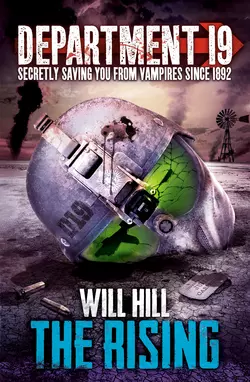The Rising

Will Hill
Тип: электронная книга
Жанр: Детские приключения
Язык: на английском языке
Стоимость: 699.98 ₽
Статус: В продаже
Издательство: HarperCollins
Дата публикации: 16.04.2024
Отзывы: Пока нет Добавить отзыв
О книге: Blockbusting sequel to DEPARTMENT 19, the biggest boy teen launch of 2011 – with over 25,000 copies sold in hardback and a devoted legion of Facebook fans.Amazing author Will Hill will be out on the road again in April to promote THE RISING, as well as maintaining a constant presence on Twitter.91 DAYS TILL ZERO HOUR.THAT′S 91 DAYS TO RUN.91 DAYS TO HIDE.OR 91 DAYS TO PRAY FOR DEPARTMENT 19 TO SAVE YOU…After the terrifying attack on Lindisfarne at the end of the first book, Jamie, Larissa and Kate are recovering at Department 19 headquarters, waiting for news of Dracula’s stolen ashes.They won’t be waiting for long.Vampire forces are gathering. Old enemies are getting too close. And Dracula… is rising.